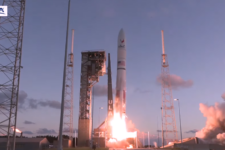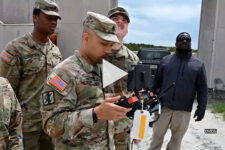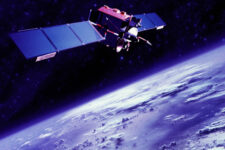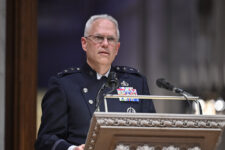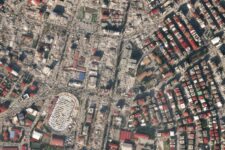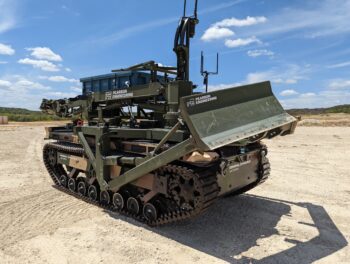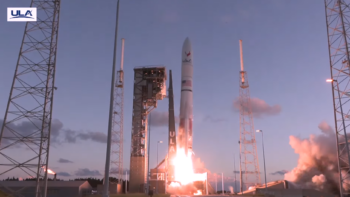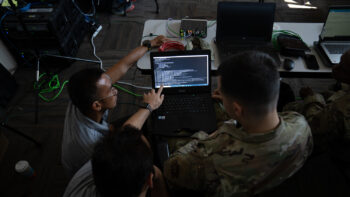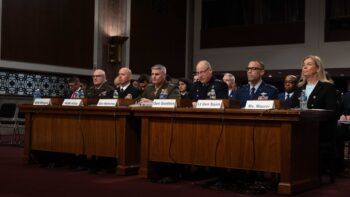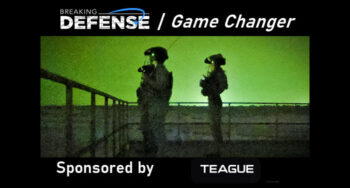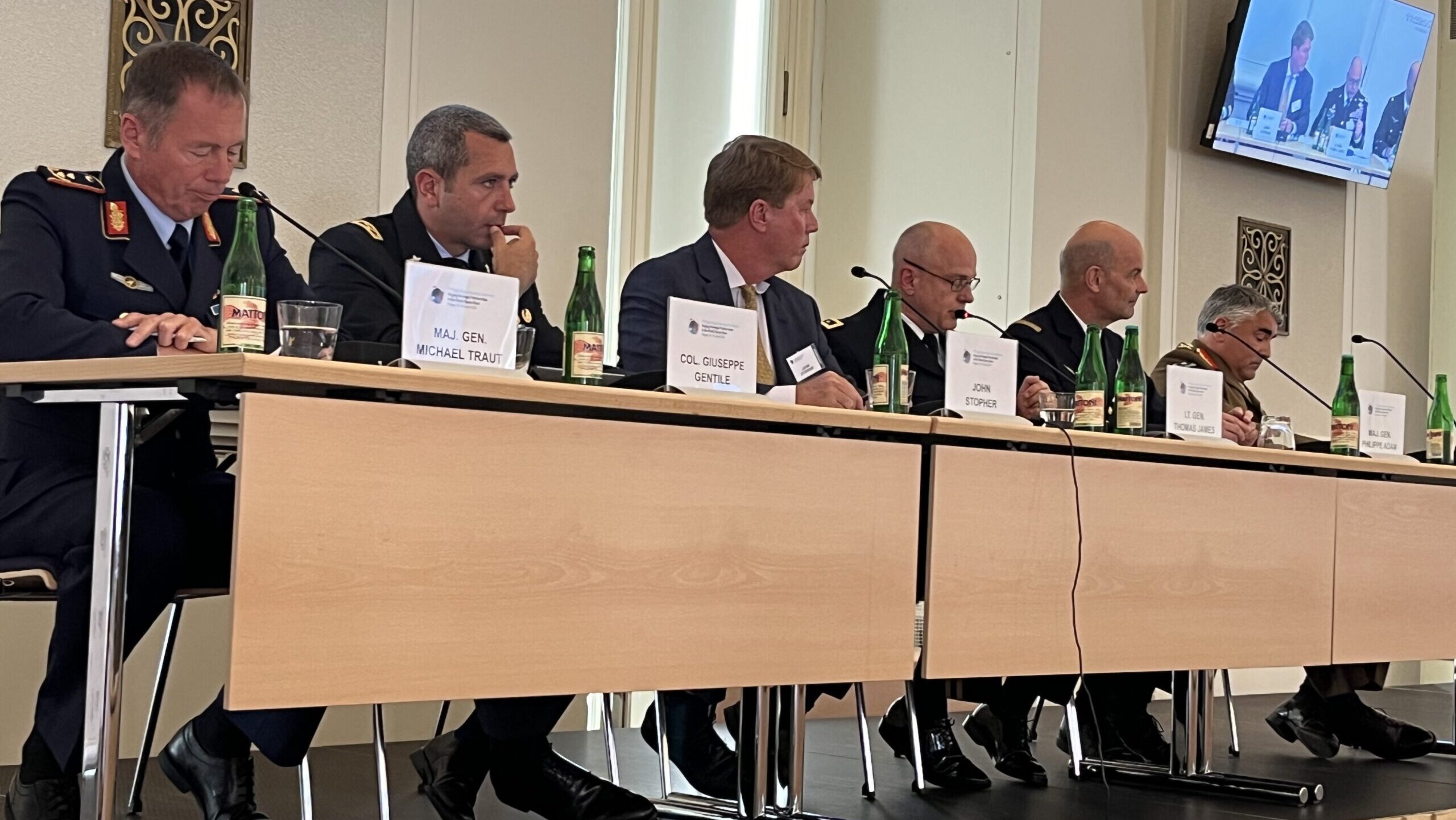
Key Western military space leaders addressed collaboration on June 17, 2024 at the 7th Annual Prague Conference on Space Security. (Photo: Theresa Hitchens/Breaking Defense)
PRAGUE — While progress has been made toward better transatlantic cooperation, top brass from Europe’s four largest military space operators say there is still a ways to go in working out how Europe and the United States will jointly respond to growing threats from Russia and China.
“I think that we are in the right path, creating synergies and optimizing systems and capabilities together,” Col. Giuseppe Gentile, chief of the Space Policy and Innovation Branch, Space Policy Office, at the Italian Defence General Staff, said on June 17 during the 7th Annual Prague Space Security Conference.
“What we should do better is try to define a way [toward] collective response to the new kind of threat that could develop,” he said. “We should agree also on some important definitions of what is the threat, what is our responsibility? Once we are agreed on that, then we can move forward to to a collective response.”
Another concern, he said, is to avoid wasting time and money on duplication in building new military capabilities.
“We need to … be synchronized in what we are aiming to develop for the future. We have to synchronize the effective operations,” Gentile said.
Maj. Gen. Paul Tedman, who has been chief of UK Space Command for only about three weeks, agreed that the end goal must be a cohesive set of operational plans for how the Western allies will fight together in space, including for command and control (C2) of forces.
“I think we need an integrated plan that we will recognize, we need simple and clear C2, so we know how we’re going to fight with who, and we do need to exercise or test those plans regularly so that we can build trust. I think trust is an important word that I will leave you with,” he told the conference sponsored by the Prague Security Studies Institute.
Echoing Tedman, France’s Space Command chief Maj. Gen. Philippe Adam said that it now time to move from simply agreeing on organizational structures for information sharing and collaborative planning to actually delivering interoperable capabilities to the field.
“All the strategies mention partnerships as an essential part of what we need to do in the future. And that’s also the discussion we have very regularly,” he said. But the main question that remains unanswered, is “what can we deliver, how can we deliver the maximum effect with what we have right now? … [And] what do we need to work on together on maximizing our capabilities or effects in the future?”
Those answers, Adam stressed, are needed as soon as possible so that the necessary capabilities are ready to address looming threats.
“We are running against time, of course,” he said. “But really, it’s time to deliver.”
US Space Command’s recently realigned and renamed Joint Commercial Operations (JCO) cell is one example of successful joint operations, agreed the four European space leaders.
“One thing is that is a great, great success story is the [JCO] run by Barbara Golf and her team, allowing many many commercial or civilian and military partners to get into that system providing space domain awareness information. … We are proud members of that,” said Maj. Gen. Michael Traut, head of German Space Command.
Lt. Gen. Tommy James, deputy head of SPACECOM, also praised the reanimated JCO.
“I think it’s a huge example of success in the military for both innovation and commercial integration,” he said.
James stressed that the work of the JCO “is so much more than just Powerpoint.” For example, he explained that JCO commercial partners were the first to warn SPACECOM in October 2023 that the Russian Cosmos 2570 satellite actually was yet another nesting doll system of multiple spacecraft, each smaller than the other. Likewise, a commercial operation in January 2022 provided eyes on China’s SJ-21 as it tugged a dead Chinese satellite to a graveyard orbit that SPACECOM used for “tipping and cueing” its own space surveillance sensors.
The JCO, he said, is “living, breathing as part of our operations today in a meaningful way.”
James emphasized that SPACECOM has been working across a number of organizations and via recent exercises such as Global Sentinel to incorporate allies and partner nations into its operations.
“Space is absolutely a team sport and we are stronger together,” he said.
Awaiting Space Force certification, ULA says future missions could aim to baffle Chinese watcher sats
ULA CEO Tory Bruno separately told reporters his firm identified a “manufacturing” error as the cause of an anomaly in its latest certification launch.
